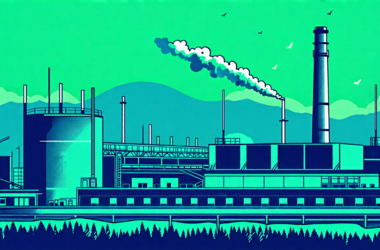The Story of Uranium and Plutonium: From Mining to Reactors
When I was a kid, we used to visit “The Book Barn,” a treasure trove of old books with a distinct smell and unorganized charm. Among the stacks of magazines, a Popular Mechanics issue from the late 1940s stood out, featuring men in a Jeep searching the desert with a Geiger counter urging readers to “Build your own uranium detector.” The optimism for a nuclear-powered future back then was palpable, with dreams of cheap electricity and flying cars.
Fast forward to today, uranium remains crucial for nuclear weapons and as a non-fossil-fuel energy source. Australia, Kazakhstan, and Canada are key players in uranium mining, with deposits found in various minerals like oxides, silicates, titanates, and vanadates.
Innovative processes like in situ leaching (ISL) have transformed uranium extraction. ISL involves injecting chemical leaching agents into boreholes in ore-bearing seams, allowing for a more continuous and efficient extraction process compared to traditional mining methods.
Enriching uranium for various applications involves separating the fissile isotope 235U from the more abundant 238U. Gaseous diffusion and gas centrifugation enrichment methods have been instrumental in this process, with the latter method being more efficient and widely used today.
Meanwhile, plutonium, the primary fuel for nuclear weapons, is synthesized in nuclear reactors through a process called “breeding.” Special production reactors are used to create weapons-grade plutonium with low concentrations of 240Pu to prevent premature detonation.
The journey from mining uranium and refining it into UO2 to enriching uranium for reactor fuel and synthesizing plutonium for nuclear weapons underscores the intricate and critical role these elements play in our energy landscape. From the depths of the earth to the heart of nuclear reactors, the story of uranium and plutonium is a fascinating tale of innovation and necessity in the quest for sustainable energy sources.









